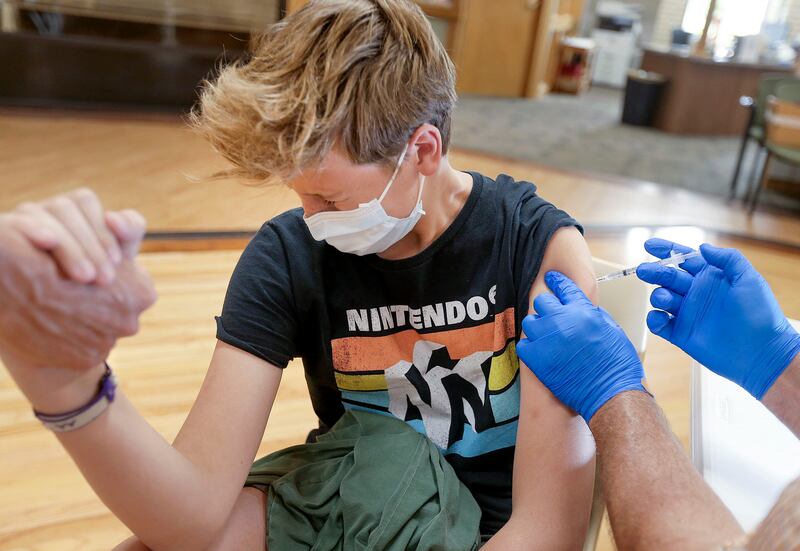The Centers for Disease Control and Prevention has endorsed booster shots for the Moderna, Pfizer and Johnson & Johnson COVID-19 vaccines, opening the door for millions more to receive COVID-19 booster shots.
The following groups can get a booster shot six months after their first two-dose regimen of the Moderna or the Pfizer vaccine:
- Those 65 years and older.
- Those 18 years old or older who need long-term care.
- Those 18 years old or older who have underlying medical conditions.
- Those 18 years or older who work or live in high-risk settings.
Per the CDC, those who got the Johnson & Johnson COVID-19 vaccine can receive a booster two months after vaccination.
Dr. Rochelle Walensky, the director of the CDC, said Thursday that the boosters are good to go.
- She also endorsed the use of the mix-and-match approach, which will allow Pfizer vaccine recipients to get the Moderna booster, or Johnson & Johnson recipients to get the Pfizer booster, and so on and so forth.
- “These recommendations are another example of our fundamental commitment to protect as many people as possible from COVID-19,” Walensky said, per the CDC. “The evidence shows that all three COVID-19 vaccines authorized in the United States are safe — as demonstrated by the over 400 million vaccine doses already given. And, they are all highly effective in reducing the risk of severe disease, hospitalization, and death, even in the midst of the widely circulating Delta variant.”
There have been questions about who should get the COVID-19 vaccine boosters shots. And, in turns out, not everyone needs to get one.
Dr. Paul Offit, a member of the Food and Drug Administration’s Vaccines and Related Biological Products Advisory Committee, told CNN that the original vaccine can do the job for most people and boosters might not be necessary for all.
- “We have to define what’s the goal of this vaccine. If the goal of this vaccine is protection against serious illness, meaning the kind of illness that causes you to seek medical attention or go to the hospital or the ICU, the current vaccines, as two-dose vaccines, are doing exactly that,” he told CNN. “So, you don’t really need a booster dose at least as far as those data are concerned.”
Rich Lakin, Utah Department of Health immunization director, told the Deseret News that people need to speak with their own doctors and do their own research to see if the booster applies to them.
- “I’m sure there’s some confusion,” Lakin told the Deseret News. “People need to take the responsibility to kind of educate themselves, also. There’s just too many people to make sure everybody understands.”


